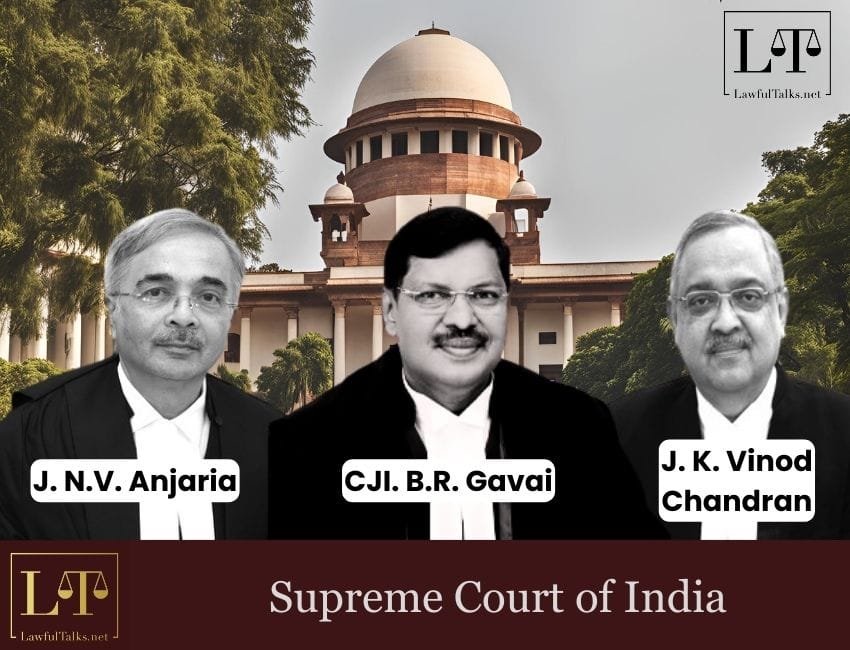Allahabad HC Sets Aside Afzal Ansari's Conviction, Allows Him to Continue as MP

The Supreme Court bench of Chief Justice of India B.R. Gavai, Justice K. Vinod Chandran, and Justice N.V. Anjaria referred to a five judge bench, the question of whether a judicial officer who has already completed seven years in the Bar is eligible to be appointed as a District Judge against a vacancy reserved for advocates.

The Court will also determine whether the eligibility for such appointment should be assessed at the time of application, at the time of appointment, or both. The reference concerns the interpretation of Article 233(2) of the Constitution, which governs direct recruitment to the post of District Judge from the Bar.
Brief Facts:
The case arose from an appeal against a Kerala High Court judgment that annulled the appointment of Rejanish K.V. as District Judge. Rejanish, a practising lawyer with over seven years of experience at the Bar, had applied for the post of District Judge as well as for the post of Munsiff-Magistrate.
While the selection process was still underway for the District Judge, he was appointed as a Munsiff-Magistrate on 28th December, 2017.
Later, after being selected for the post of District Judge, he was relieved from the subordinate judiciary on 21st August, 2019, and assumed charge as District Judge, Thiruvananthapuram, on 24th August, 2019.
However, another candidate, K. Deepa, challenged his appointment, arguing that he was not a practising advocate at the time of appointment but was serving as a Munsiff.
The Kerala High Court’s Single Bench, relying on the Supreme Court’s ruling in Dheeraj Mor v. High Court of Delhi, held that an advocate seeking direct recruitment as District Judge must continue in practice until the date of appointment.
The Division Bench upheld this finding but noted that rules in various states, including Kerala, may have permitted appointments contrary to Dheeraj Mor. Given the potential nationwide implications, the High Court granted a certificate for appeal to the Supreme Court.
The Supreme Court bench noted that the matter involves a substantial question of law of general importance. The Court emphasised that the interpretation of Article 233(2) is central to resolving whether judicial officers with prior Bar experience can be appointed to Bar quota posts and the precise point in time when eligibility should be assessed.
Indicating that the matter will be heard soon, CJI Gavai passed the reference order to a Constitution Bench. The Supreme Court’s final decision could have far-reaching consequences for judicial appointments across India.
Case Details: Rejanish K.V. vs. K. Deepa, Civil Appeal No(s). 3947 of 2020

Anushka Bandekar
Advocate
Latest Posts
Categories
- International News 19 Posts
- Supreme Court 347 Posts
- High Courts 361 Posts


















































































































































































































































































































































































































































































































































































































































































































































